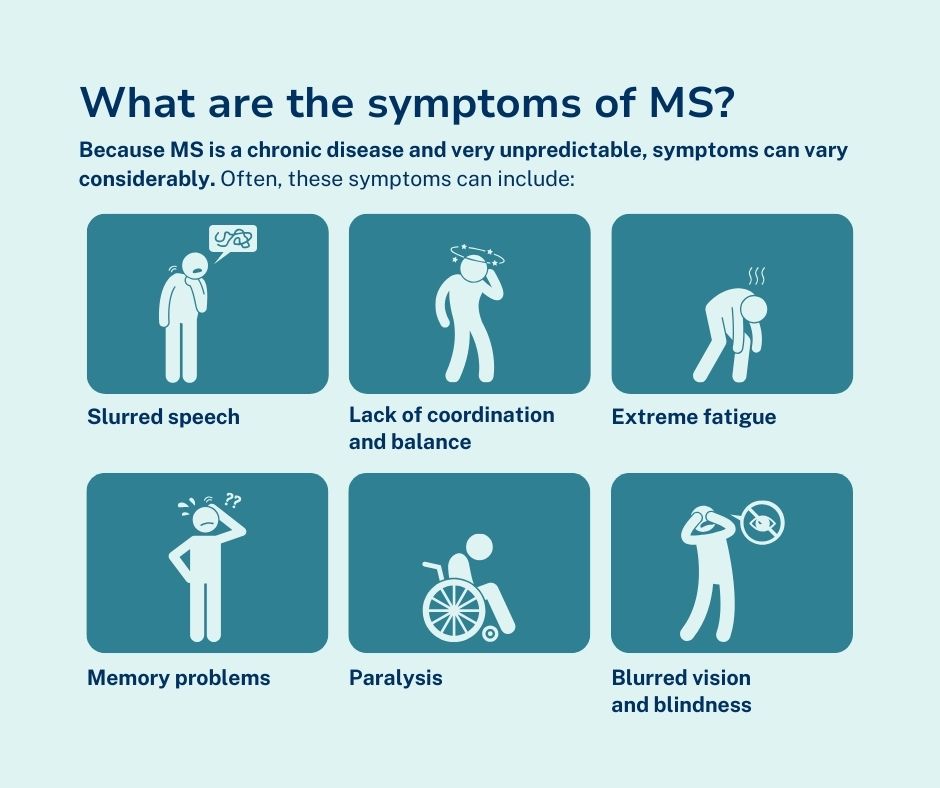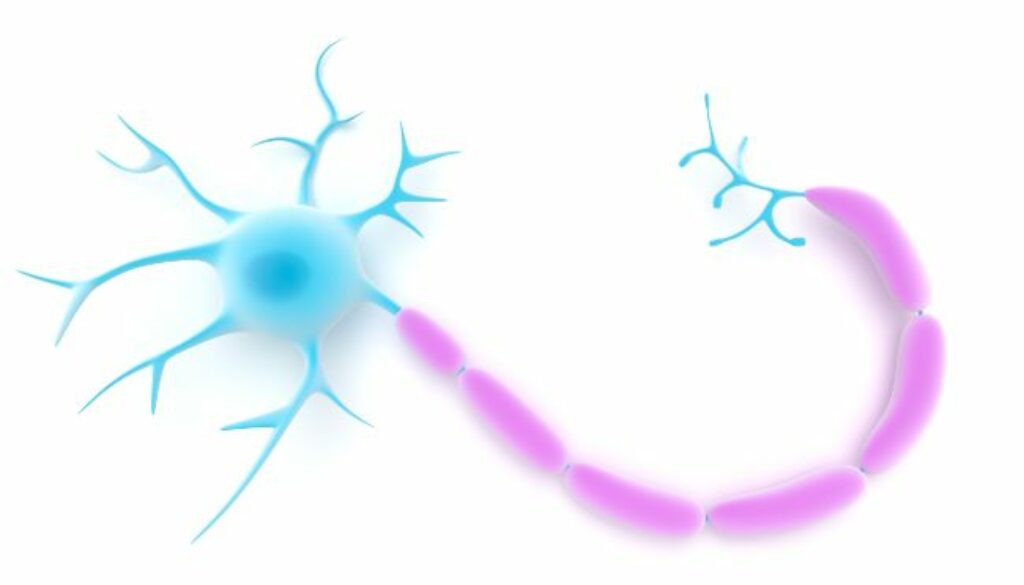Multiple Sclerosis: What Is It And How Is It Treated?
Imagine suddenly losing your balance while climbing stairs. Or being unable to button your shirt because of blurred vision or hand tremors. For more than 2.3 million Americans, living with multiple sclerosis (MS) presents these challenges and many more every day. Because MS affects the immune and central nervous systems, its symptoms can cause problems to almost any part of the body.
WHAT IS MS AND WHAT ARE THE SYMPTOMS?
To understand MS, it’s necessary to first review some basic facts from Anatomy 101.
The brain uses the central nervous system to communicate with various parts of the body, giving them instructions and telling them what to do. This system is comprised of nerves extending throughout the body. These nerves are insulated with something called myelin that allows signals and electrical impulses to move along the nerve cells smoothly and efficiently. When myelin is damaged, the signal is disrupted, causing a variety of symptoms. Some of the symptoms of MS may include:

However, in some cases, MS may not present any symptoms. Those with MS may also go into remission and have periods of time where they are symptom-free.
Researchers believe that MS may be an auto-immune disorder. An auto-immune disorder is when the body’s immune system malfunctions and begins to attack its own systems. While MS is not contagious, researchers are still exploring the possibility of a genetic component of the disease. According to the National Multiple Sclerosis society, studies indicate that environmental and genetic factors may cause some people to be more susceptible to MS.
HOW IS MS TREATED?
While there is no cure for MS, medication may be used to manage symptoms and reduce myelin inflammation. Because there is such a variety of MS-related symptoms, it is vital that patients work with several different health care professionals across several specialties in order to tailor an appropriate course of treatment.
There are several different facets of MS treatment. Effective treatment should involve a comprehensive across several medical disciplines. MS care involves:
- Managing the disease: Certain medications can keep MS from getting worse and can decrease the severity of the illness.
- Treating exacerbation: MS may become exacerbated when inflammation in the central nervous system causes additional damage to the myelin.
- Managing symptoms: Because the central nervous system controls so many different bodily functions, there may be a wide range of symptoms. Medications can be prescribed to treat these symptoms, which can include dizziness, pain, tremors, fatigue and walking difficulties.
- Rehabilitative care: Rehabilitation can help patients at all stages of MS. Rehabilitation programs focus on improving a patient’s ability to perform everyday tasks. Rehabilitation may involve addressing problems with speech, memory swallowing and mobility.
- Emotional support: MS also impacts patients and families emotionally. Mental health professionals are important members of the health care team for those with MS..




